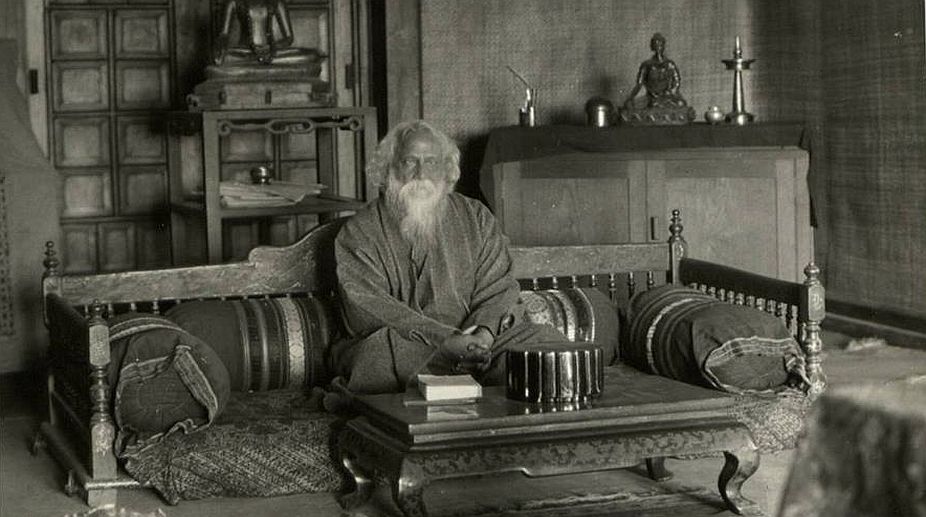Balmiki Pratibha takes the final bow with its 100th act
On Sunday, 17 November, Rabindra Sadan witnessed the 100th and final staging of Balmiki Pratibha, Rabindranath Tagore’s timeless tale of redemption.

(Photo: Facebook)
The month of Srabon (July-August) brings back memories of mirthful yearnings and sweet nostalgia. The dark lingering clouds often leaves us gloomy but sometimes the sound of incessant rainfall also lights up our hearts. The day 22 e Shrabon or 7 August 1941 will remain etched in our memories forever.
This was the day when, along with the pouring rain, mingled the tears of heartbreak as the revered poet Rabindranath Tagore left us.
Advertisement
Even today, he is the ultimate companion Bengalis resort to in inspiring mornings, lonely afternoons and exhausted evenings. Tagore is not only an icon of Bengal, but a multi-faceted luminary whose impact on socio-political culture was of immense importance.
Advertisement
As a visionary he dreamt of imparting holistic education in a rural environment without the shackles of monotonous conformity. This dream materialised into Shantiniketan, the abode of peace, in 1901. For him, man’s most coveted prize is his ability to reason and he advocated this thought along with the right to live, during the most turbulent years of India. He strived for the country's freedom and vehemently opposed the fragmentation of his motherland. He was one of the most prominent figures of Bengal Renaissance.
Apart from being an immensely versatile poet, he was a novelist, short story writer, playwright, composer, painter and an essayist whose range of topics spread over social change, culture, religion, philosophy, literature and everything in between. He became the representative of the East and won the Nobel Prize in Literature in 1913.
“The first stage of my realisation was through my feeling of intimacy with nature,” wrote Tagore. Nature, shown in the liveliest way as no man can ever see, features in his works. Each unexpressed emotion finds words with his creativity. His perspective shows how nature always mirrors man’s moods.
In his intriguing philosophical doctrine, nature is both death and rebirth, a paradox that finds synthesis in the divine plan. The melody of nature enchanted his soul and out of that emerged some of his timeless songs.
Srabon has many a time featured in his melancholic works with the mood of impending doom or in his verses of dreamy longings in the guise of a woman. He found peace amidst the turbulent storms of Shrabon and and catharsis in the profound rain. Tagore was someone whose life had been so tragic that death could never bring him down.
He had to bear the loss of his loved ones many a times but he was blessed with immortality in the hearts of thousands. Life and death was always a conundrum to him which he explored in one of his works, Shesh Lekha (Last Writings).
On his deathbed, Tagore wrote the most profound poem which gives an impactful personification of sorrow and death. He laments how sorrow has stricken him throughout life with the powerful weapon of ‘twisted brow’ or ‘fear’s hideous gestures’.
With his life, the poet has recognised that sorrow is a ‘skillful handiwork’ of death that keeps chasing us since our childhood days and giving in to it is like living a battered life.
(Coordinator, Class XI, Kalyani University Experimental School, Kalyani)
Advertisement